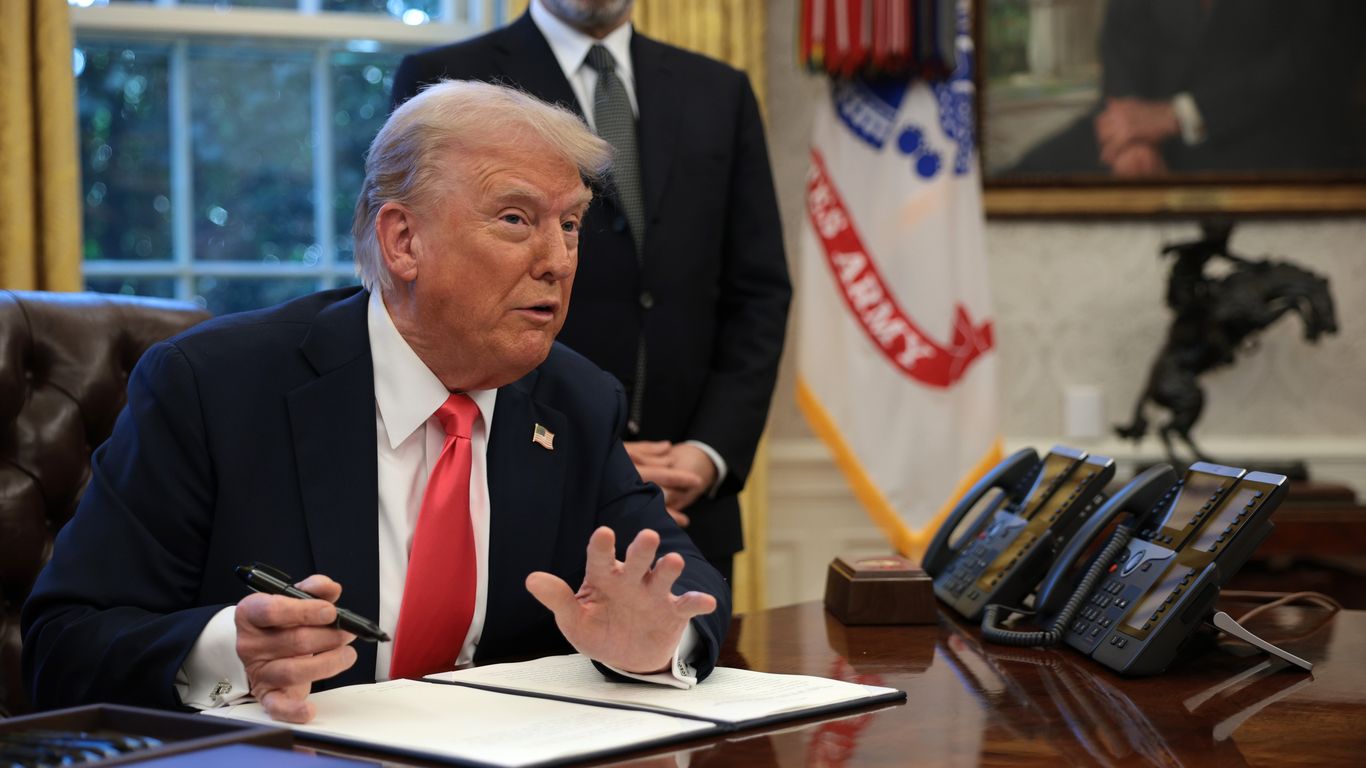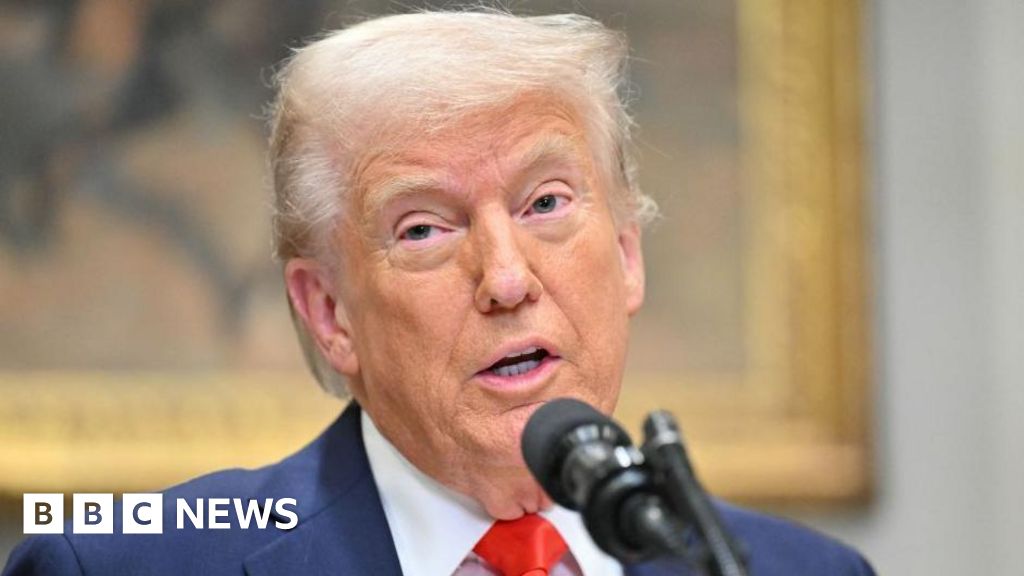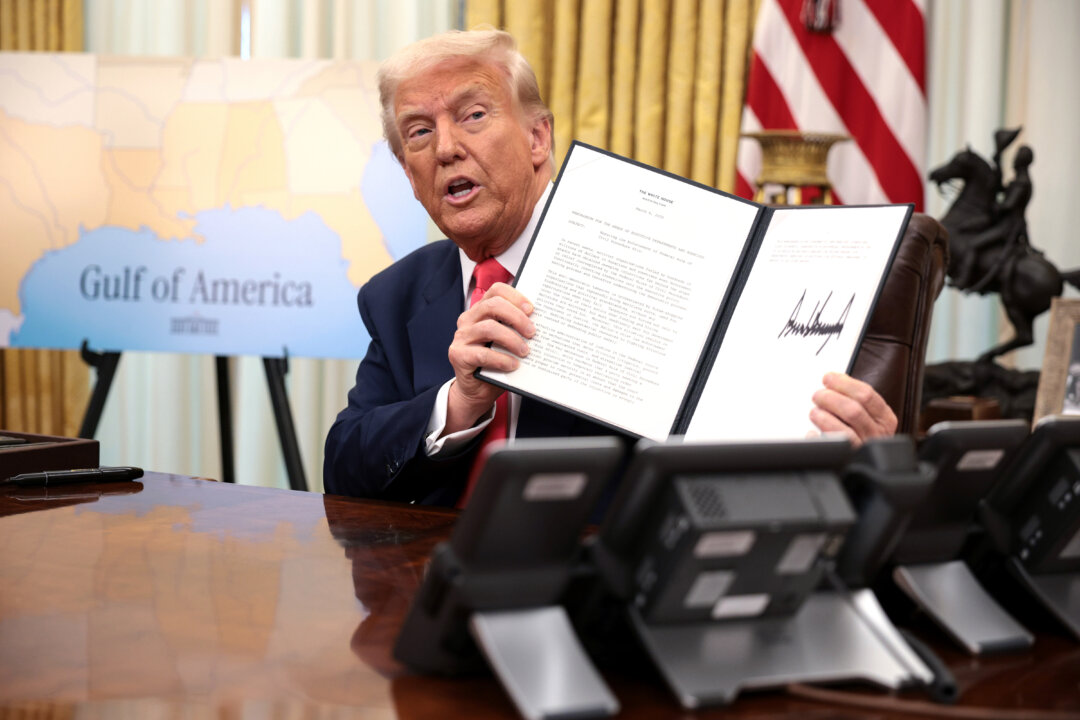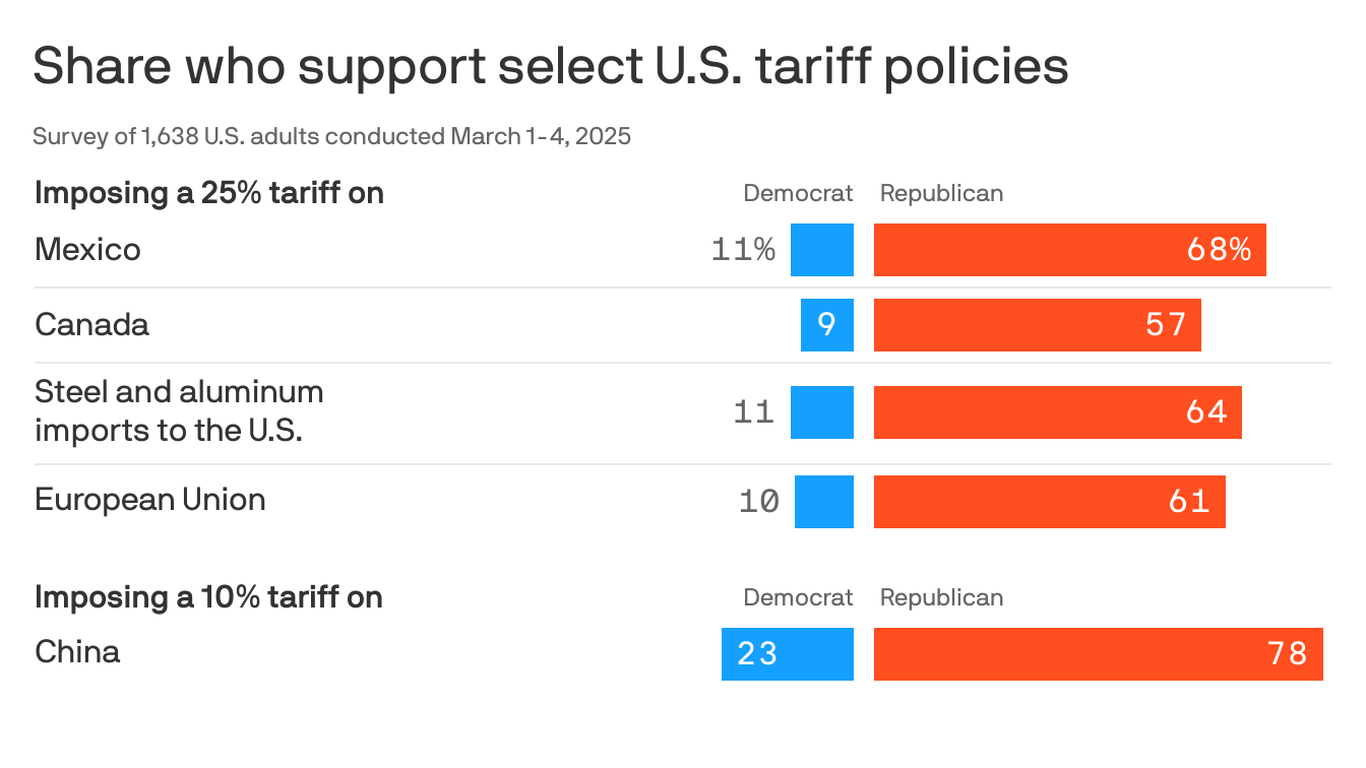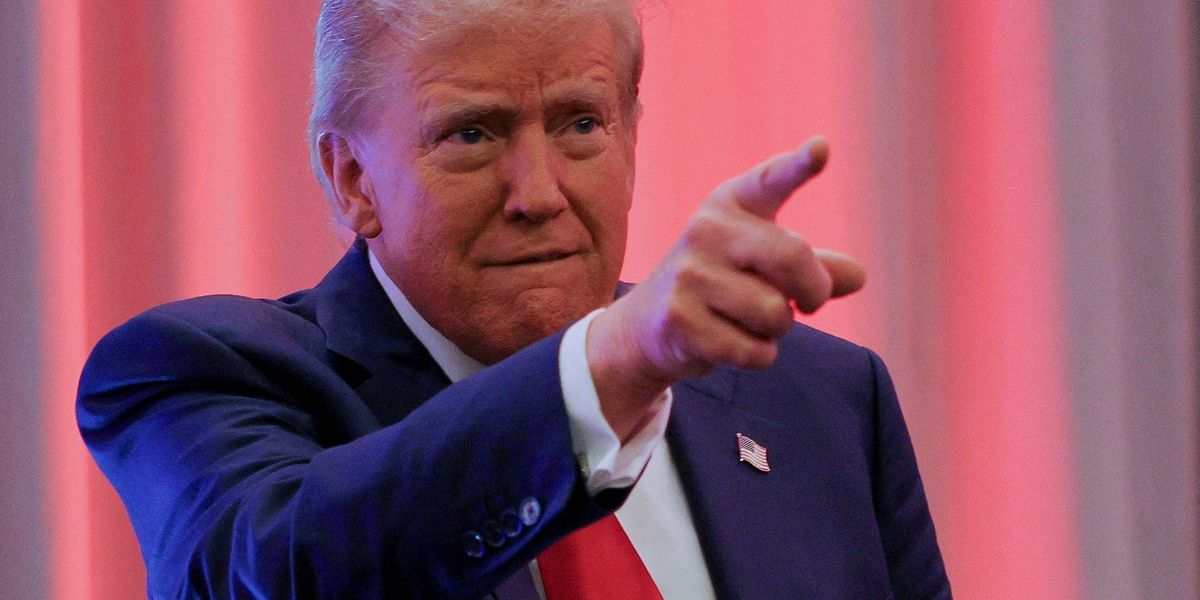Trump Pauses Tariffs on Canadian and Mexican Goods Amid Trade Tensions
President Trump suspends tariffs on Canadian and Mexican goods while China resists U.S. claims regarding fentanyl trafficking, causing ongoing economic uncertainty.
Overview
In an evolving trade landscape, President Trump announced a temporary pause on tariffs for certain Canadian and Mexican goods, expanding a prior exemption for U.S. automakers. This suspension applies predominantly to imports compliant with the USMCA agreement, alleviating immediate concerns for 50% of Mexico's exports and 38% from Canada. Despite this, Trump remains firm on imposing steel and aluminum tariffs next week and reciprocal tariffs in early April, contributing to ongoing market volatility. In parallel, China's rejection of U.S. allegations regarding fentanyl trafficking complicates diplomatic relations and exacerbates trade war fears, highlighting the global economic repercussions of Trump's decisions.
Report issue

Read both sides in 5 minutes each day
Analysis
Analysis unavailable for this viewpoint.
Articles (40)
Center (22)
FAQ
President Trump initially imposed tariffs on Canadian and Mexican goods due to concerns about illegal immigration and the flow of fentanyl into the U.S., which he linked to a national emergency under the International Emergency Economic Powers Act (IEEPA).
The temporary pause applies to Mexican goods that comply with the U.S.-Mexico-Canada Trade Agreement (USMCA) and will last until April 2nd. This exemption was made following a discussion between President Trump and Mexican President Claudia Sheinbaum[3].
China's rejection of U.S. allegations regarding fentanyl trafficking complicates diplomatic relations and exacerbates trade tensions between the two countries, contributing to fears of a broader trade war[2].
The tariff decisions contribute to ongoing market volatility and economic uncertainty, affecting trade dynamics between the U.S., Canada, Mexico, and China. This volatility is particularly evident in stock markets and trade agreements[3].
History
- 9M

 6 articles
6 articles







